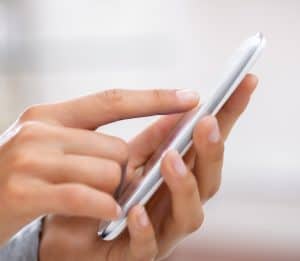Cell phone apps that self-monitor can assist with weight loss
A discussed in multiple other research projects, self-monitoring of dietary intake is essential for successful weight loss. Self-monitoring is one means of behavioral weight loss treatment, but most of the research has been done through paper journals and logs. Past research has shown that people often start with the goal of recording their food intake. Despite early success, most fail to continue over time. Very little research has involved newer cell phone applications as a means to monitor. The good news is that today, you have multiple options to follow your diet, weight, exercise, and just about anything that might affect weight loss.
Ultimately, the lack of research has not hindered the use of such products, and new research is emerging to support the use of cell phone applications for weight loss and maintenance. One recent randomized controlled study aimed to examine a behavioral weight loss intervention that seeks to attenuate the decline in dietary self-monitoring engagement by using
The study revealed engagement in neither diet nor weight tracking differed between arms, so regardless of the order in which diet is tracked, using tailored goals and a commercial mobile app can produce clinically significant weight loss. Stand-alone digital health treatments may be a viable option for those looking for a lower intensity approach and may assist in reaching more of those who need assistance.
As with any weight loss attempt, compliance is the key to success. Successful participants in this study did more than just log their diet and exercise. They were committed to weight loss and being healthier. The ease of the cell phone based app seems to have increased their conformity to the plan. Having used MyFitnessPal, it is not because it is the best solution out there.
The bottom line: Commercial mobile applications can produce clinically significant weight loss regardless of the diet you choose to follow. Overweight people tracked daily food consumption using a free smartphone app and lost a significant amount of weight. This study is promising and should lead to further studies.









Be the first to comment on "Research: App based self-monitoring works in weight loss"